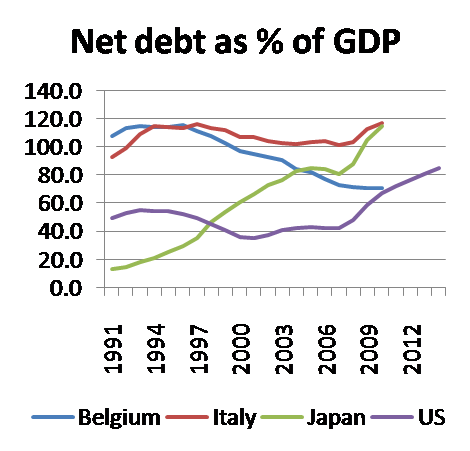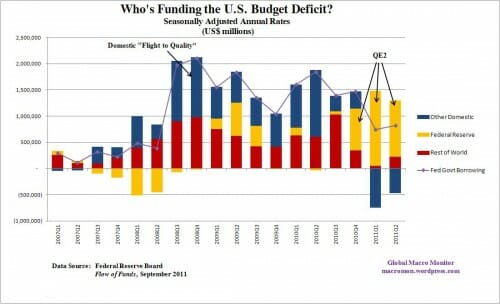My Five Causes of the Decline and Fall of the Roman Empire
Rocochet asks this question over the weekend: What are your top 5 causes of the fall of the Roman Empire. OK, I will take a shot at this from my decidedly amateur perspective:
- Demographic collapse, caused by a series of plagues (perhaps even an Ur version of the black death) and possibly climate change (colder) that depopulated the western half of the empire
- A variety of policies (e.g. grain dole) that shifted population from productive farms to the cities. In the 19th century, this shift was to be growth-inducing as farm labor was moving into growing factories, but no such productivity revolution existed in Roman cities. The combination of #2 with #1 left huge swaths of farmland abandoned, and the Romans dependent on grain ships from North Africa to feed the unproductive mouths in large Italian cities. It also gutted the traditional Roman military model, which depended strongly on these local farmers for the backbone of the army.
- The Romans lost their ability to be innovative in including new peoples in their Empire. The Romans had a bewildering array of citizenship and tax statuses for different peoples who joined or were conquered by the empire. For hundreds of years, this innovation was hugely successful. But by the 4th and 5th centuries they seemed to have lost the trick. The evidence for this is that they could have solved multiple problems -- the barbarians at the gates and the abandonment of farm land and the need for more soldiers -- by finding a way to settle barbarians on empty farm land. This is in fact exactly what the barbarians wanted. That is why I do not include the barbarian invasions as one of my five, because it did not have to be barbarian invasions, it could have been barbarian immigration. Gibson's thesis was that Christianity killed the Roman Empire by making it "soft". I don't buy that, but it may have been that substituting the Romans' earlier incredible tolerance for other religions in their Pagan period with a more intolerant version of Christianity contributed to this loss of flexibility.
- Hand in hand with #3, the Roman economy became sclerotic. This was the legacy of Diocletian and Constantine, who restructured the empire to survive several centuries more but at the cost of at least an order of magnitude more state control in every aspect of society. Diocletian's edict of maximum prices is the best known such regulation, but in fact he fixed most every family into their then-current trades and insisted the family perform the same economic functions in all future generations. Essentially, it was Ayn Rand's directive 10-289 for the ancient world, and the only reason these laws were not more destructive is that the information and communication technologies of the time did not allow for very careful enforcement.
- Splits in the governance of the empire between west and east (again going back to Diocletian) reduced the ability to fund priorities on one side of the empire with resources from the other side. More specifically, the wealthy eastern empire had always subsidized defense of the west, and that subsidy became much harder, and effectively ended, in the century after Diocletian.
I will add, as a reminder, that to some extent this is all a trick question, because the Roman Empire really did not totally fall until the capture of Constantinople in 1453. So I should have stated at the outset that all of the above refers to the fall of the western empire in the late 5th century, which in part explains why #5 is there in the list.
And, if you were in a room of historians of this era, you could quickly get into an argument over whether the western Roman empire really fell in the late 5th century. For example, the Visigothic Kingdom in the area of modern southern France and Spain retained a lot of Roman practices and law. But I have gone with tradition here and dated the "fall" of the empire to 476 when the Roman Emperor was deposed and not replaced.


